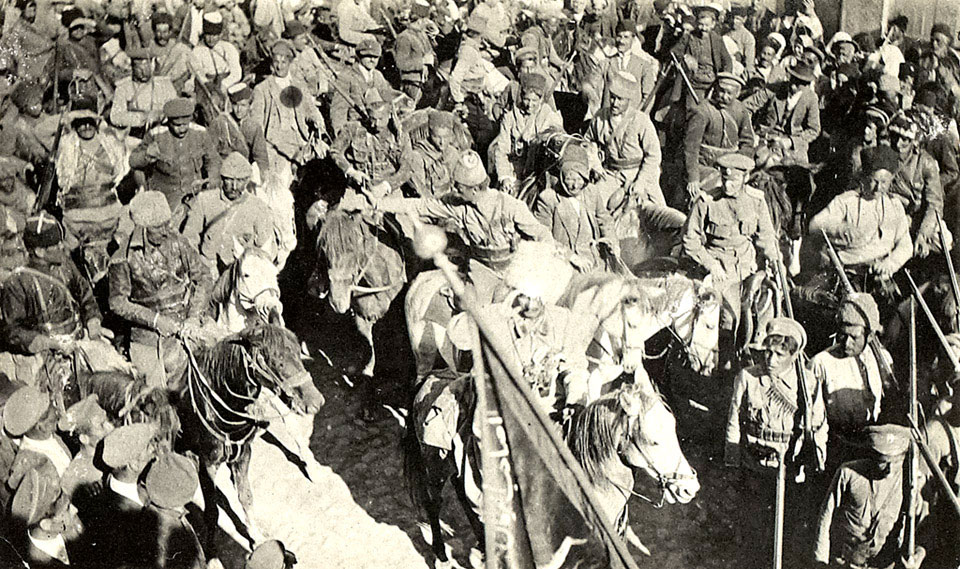
Online Collection
« Prev - 1 of 1 results - Next »
Assyrian troops led by Agha Petros (saluting) with a captured Turkish banner in the foreground, 1918
Photograph, World War One, Caucasus (1914-1918), 1918.
The Baku oil installations were deemed vital to the Allied war effort so after the Russian armies in the Caucasus collapsed following the October Revolution (1917), the British attempted to bolster the Allied position there by despatching a military mission called Dunsterforce.
Troop and supplies were gathered at Hamadan and Enzeli in north Persia before crossing the Caspian Sea to Baku. During their stay in north Persia Dunsterforce sent a small force with money and arms to assist the Jelus, a group of Assyrians resisting the Turks around Lake Urmia. The Jelus were led by Agha Petros, a school teacher who became a general.
But when the British group arrived they found the town of Urmia captured by the Ottoman army. About 80,000 people fled and the Dunsterforce party helped hold off the Turkish pursuit and attempts by Muslim Kurdish tribesmen to attack the refugees. Eventually they reached safety near Hamadan, where a brigade-sized force was later raised from the survivors, trained and commanded by a small Dunsterforce detachment. The remaining Assyrian refugees were sent on to refugee camps near Baghdad.
From an album of 334 photographs compiled by Major W Leith-Ross, Army Staff and 13th Frontier Force Rifles, 1918-1920.
NAM Accession Number
NAM. 1983-12-71-189
Copyright/Ownership
National Army Museum, Out of Copyright
Location
National Army Museum, Study collection
Object URL
https://collection.nam.ac.uk/detail.php?acc=1983-12-71-189+

